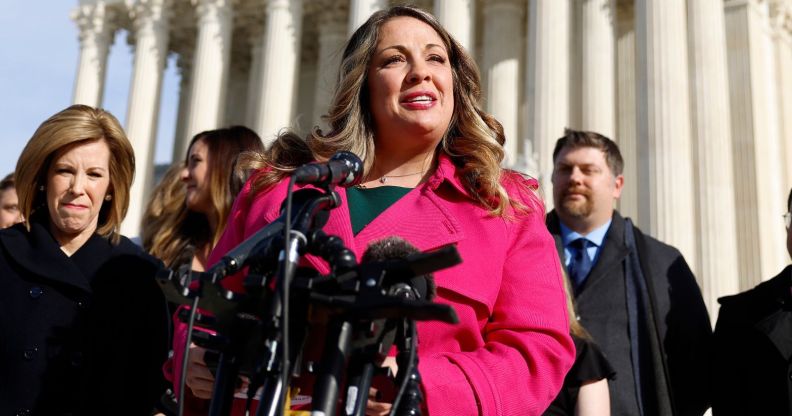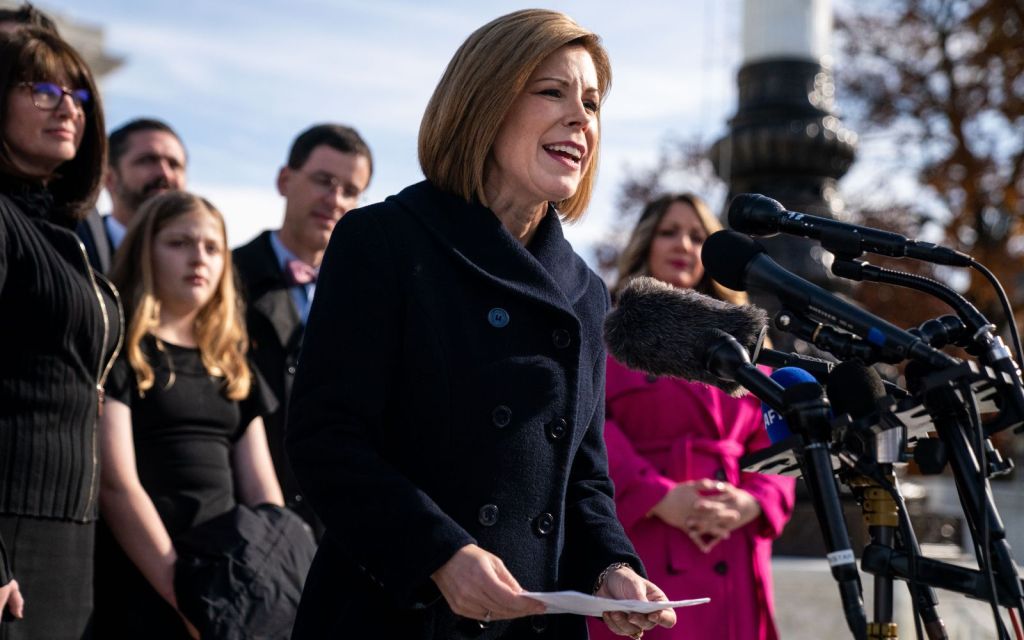Supreme Court to decide if Christian woman can refuse work for same-sex couples

Lorie Smith says her web design business has a right to refuse same-sex couples for wedding commissions. (Getty)
Lorie Smith says her web design business has a right to refuse same-sex couples for wedding commissions. (Getty)
The US Supreme Court has been tasked with deciding whether an anti-LGBTQ+ woman can turn queer people away from her business.
Web designer Lorie Smith has claimed Colorado’s LGBTQ-inclusive nondiscrimination law violates her Christian beliefs in choosing not to serve same-sex couples.
She filed a lawsuit in 2016, claiming that her web design business 303 Creative LLC had a right to refuse same-sex couples for wedding commissions, but lost at the federal district court and several appeals.
The US Supreme Court then agreed to hear the case in February, but only on her free speech claim.
Representing her are lawyers from the Alliance Defending Freedom (ADF), an anti-LGBTQ+ organisation that vows to “uphold [Lorie Smith’s] constitutional freedoms”.
In an opening argument, the organisation said: “It is bedrock law that the First Amendment protects an artist’s right to choose what to say and when to remain silent.
“Artists should not be coerced by the government to make art they disagree with,” it continued in a statement.
“Colorado has gone too far in censoring Christian artists like… Lorie Smith to publish messages they disagree with.”
According to court filings, it appears Lorie Smith has never been asked to create a wedding site for a same-sex couple.

Colorado Civil Rights Division director Aubrey Elenis, whose organisation enforces the state’s anti-discrimination law, is being represented by Colorado lawyer Eric Olsen.
In a brief to the Supreme Court, Olsen wrote that allowing businesses to refuse service because of a person’s identity would break a “common-law tradition” that would deny the group “full participation in the marketplace”.
In a statement prior to the hearings, Human Rights Campaign legal director Sarah Warbelow said the case could set a precedent of allowable discrimination towards certain groups.
“If a business is open on main street, it must be open to everyone, regardless of who they are or whom they love,” Warbelow said.
“At its core, this case is a cynical effort to manipulate the First Amendment in order to provide a license to discriminate against LGBTQ+ people and our families.
“A business owner’s personal beliefs should never be reason enough to discriminate against a customer.”
Jack Phillips sues Colorado after rejecting trans customer
The legal case mirrors a similar situation involving the anti-LGBTQ+ baker Jack Phillips, who refused to bake a cake for a gay couple in 2016.
Phillips, who runs the Masterpiece Cakeshop in Denver, gained national recognition during the legal case after citing “religious objections” to refusing the couple.
During the case, he routinely professed his anti-LGBTQ+ sentiments and claimed that Jesus Christ wouldn’t have baked a cake for gay people.
“I believe that the Bible clearly teaches that marriage is between one man and one woman,” he said.
“Would Jesus have made the cake? I don’t believe he would have.”
The court found that the commission violated any ‘religious freedom’ protections that are given to Philips under the First Amendment, and ordered him to cease discriminating against same-sex couples.
He would later find himself in a similar legal battle against a trans woman whom he refused to bake a gender-reveal cake for.

